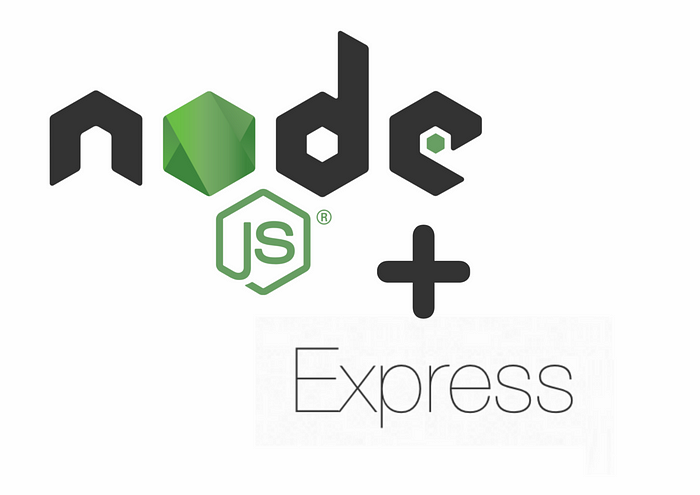
Are you looking forward to developing web applications? If so, the challenge that comes your way is choosing the backend development technology. As the backend defines how well the website will perform in the market.
However, the market is flooded with backend technology. Two well-performing backend technologies are Node Js and Express JS, which make an impression by showing exceptional performance in web applications.
But the debate doesn’t end here, as both Node Js and Express JS have had tough competition in the market. Both technologies perform well in features, quickly adapt, and much more. How can you decide between two of the best backend technology? Fret not. You landed on the right page.
This article will cover comprehensive differences between Express js vs Node js and help you make the ideal choice.
What is Node JS?
An extension of JavaScript, NodeJS is an open-source server-side runtime environment built around the NodeJS language. Using a single-threaded approach for web loading and asynchronous programming, the framework has achieved great success in being highly-performant and scalable.
In addition, you may also benefit from using it to improve the backend functionality of your project by implementing Node JS-based frameworks like Express, Socket.io, and Meteor.
Pros & Cons of NodeJS
NodeJS imparts numerous advantages and is suitable for developing various applications. Whatever type of application you develop, the development platform will be beneficial.
Pros
- It is a single-threaded platform that offers high scalability.
- Its non-blocking architecture and event loop provides unmatched speed.
- Javascript modules in the tool greatly simplify web application development.
- For code execution, it uses Google Chrome’s V8 Javascript engine, making debugging easy.
Cons
Only a few databases support it, such as relational ones. However, ExpressJS helps developers to overcome this challenge.
Entry-level developers might need clarification on the programming model.
ExpressJS: Overview
ExpressJS is a framework for developing web applications with NodeJS. Among the two options, it is the most significant difference. The ExpressJS development services framework provides several exceptional features that make developing web apps easy and fast. By contrast, using the latter alone makes developing web apps more complex.
ExpressJS Pros and Cons
As we move forward, let us examine the pros and cons of ExpressJS for web development.
Pros
- APIs for routing are robust.
- This platform offers some powerful features and is easy to use.
- Redis, MongoDB, and other databases can be easily integrated.
- Contains an extensible and customizable architecture.
Cons
- Lacks any database interaction options or ORM integration.
- It uses many middleware functions, often creating a codebase filled with bases.
ExpressJS vs. NodeJS: What are the Major differences between the backend technology?
As we have discussed what they are and the benefits they offer, it is time to highlight their differences.
Performance
The ExpressJS NodeJS framework is flexible and minimal, offering many features such as sessions, routing, caching, and more. Compared to NodeJS, ExpressJS manages server setup clutter more efficiently.
In contrast, NodeJS has an event-driven, non-blocking I/O model, which makes it a practical and lightweight server option. There must be a low-latency environment that can handle many concurrent connections. With NodeJS, such an application can be developed quickly and efficiently.
Testing
Testing is made easier with ExpressJS due to its ease of use, and a comprehensive set of tools facilitates the testing process. As a result, you can test the application’s functionality to the greatest extent possible. Many testing suites are available, such as Chai, Mocha, Jasmine, etc.
In NodeJS, some assumptions are made regarding your application’s structure. Consequently, you will not need to set up the directory structure. The result is that writing tests for your app becomes easier, but you may also encounter several code structure issues.
Coding Time
Express.js is faster than Node.js regarding coding time, and Node.js requires more coding time than Express.js.
Scalability
This framework primarily develops applications involving APIs, web apps, and mobile apps. At its core, Express is a middleware and routing framework. Having NPM installed as a dependency can make it easier for express to be used with NodeJS since it becomes easy to use.
Also, it extends Node’s capabilities so that it can be used to create services and applications. Using Node and Express together can lead to deadly results.
With NodeJS, high throughput, and scalability are made possible through its asynchronous operations. NodeJS does not make multiple threads, instead managing all connections within a single thread, and the events are queued in the event loop. When you hire dedicated Nodejs developers, for development project you stay ahead in the competitive market.
Application Architecture
Since Express does not specify an architecture, so when you hire Express.js developers, you are free to choose what structure they would like for their web applications. Despite this, MVC (Model-View-Controller) architecture is the most common architectural style for Express apps.
As for Node JS, it uses a Single-threaded Event Loop design internally, which makes it capable of handling multiple concurrent requests efficiently. With Node.js, it is also possible to isolate and resolve problems in the application source code by using the MVC/ MVP architecture style.
Conclusion
In terms of ExpressJS vs. NodeJS, both options can be used to create a fully-featured web or app. Most applications use NodeJS, so it’s a broader choice, and ExpressJS is a more appropriate option for product owners and CTOs creating an MVP or testing product for the market.
